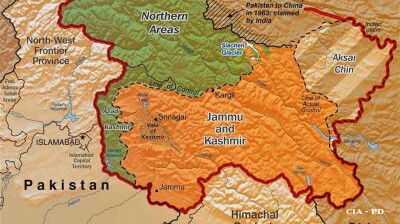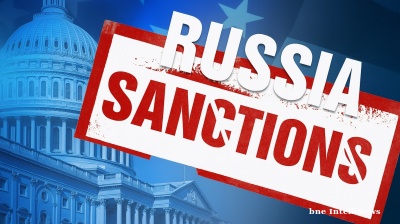US President Donald Trump let more deadlines to impose crushing sanctions and tariffs on Russia to end the war in Ukraine slide yet again. The reason might be that he is still hoping to sign off on multi-billion-dollar business deals with the Kremlin.
The latest was an August 8 deadline to halt hostilities or face 100% duties and secondary sanctions on Russia crude oil customers if Russian President Vladimir Putin did not call a ceasefire. But that deadline was abandoned after the Kremlin agreed to the Alaska summit on August 15. India did get an additional 25% of duties for trading with Russia, but China, the other major purchaser of Russian crude, was given a stay of execution until November. Trump has since threatened to return to the sanctions idea, but at the weekend, he was giving the Kremlin another two weeks of time, pushing the new deadline into the middle of September.
During the various rounds of talks, most of the comments coming out of the meetings have pertained to POW swaps and the potential for a ceasefire, but in the background it has been clear there is a parallel track of unvocalised talks about business. Secretary of State Marco Rubio said at the very start of the process in Riyadh in February that there was a “historic opportunity” to do business with Russia, a sentiment echoed by Kirill Dmitriev, the head of Russia’s sovereign wealth fund, who has participated in all the meetings and said in Riyadh that he was leading a “parallel track” of negotiations with America on doing deals.
ExxonMobil invited back to Sakhalin
Putin has alluded to restarting commercial relations on several occasions. He has ordered the government to draw up rules for international companies that want to return to the Russian market. He also offered Trump to launch joint ventures to exploit Russia’s vast reserves of critical minerals and rare earth metals (REMs), as well as suggesting the US invest in Russia’s development of the huge oil and gas deposits in the Arctic. Likewise, ahead of the Alaska summit Trump suggested that Russia and the US jointly develop the mineral deposits in Alaska.
Now things have taken a concrete step forward. Putin signed a decree allowing ExxonMobil to potentially return to the Sakhalin-1 oil project, opening the door for renewed US-Russia energy cooperation days before the start of the Alaska summit on August 15. ExxonMobil pulled off the project shortly after the Russian invasion of Ukraine in 2022, booking hundreds of millions of dollars of losses as a result.
The decree could enable ExxonMobil, the largest US oil company, to re-enter the venture as a shareholder with a 30% stake. While Sakhalin-1 is not subject to formal Western sanctions, ExxonMobil pulled out and its stake was subsequently transferred to a Russian operator, as the company made no public effort to retain its interest.
Moscow and Washington are now in talks over potential cooperation on natural gas projects in both Russia’s Arctic zone and the US state of Alaska, according to Putin.
Restarting cooperation with the US is also key for developing Russia’s LNG business in the Arctic, led by privately owned firm Novatek. The company has built a liquification plant and is actively exporting LNG, but its Arctic LNG-2 expansion has been stymied by sanctions that prevent it buying critical technology, almost exclusively made by US companies. Speaking at a meeting with nuclear industry workers in Sarov on August 23, Putin highlighted the growing role of Russian energy companies in LNG.
“We have several companies, namely the Novatek company, which is one of our big companies working in the field of natural gas liquefaction,” he said.
Putin stressed that Novatek already works “in cooperation with many partners, both European and Asian ones,” and suggested the scope for expanding such collaboration across the Atlantic. “By the way, we are discussing with our American partners the possibility of working together in this field, not only in our Arctic zone but also in Alaska,” the president added.
The Russian leader underlined that Moscow possesses advanced capabilities in LNG production that could attract interest abroad, without adding that attempts to replace US technology with Chinese analogues has proven a miserable failure.
“Russia currently has unique technologies in this field, which are of interest to Russian partners, including in the United States,” he noted.
Pointing to longer-term prospects, Putin said: “The Arctic zone, the Northern Sea Route and your work there have great prospects, and they are developing at a very good pace.”
The meeting between Vladimir Putin and Donald Trump in Alaska made possible not only the prospect of a peace agreement on Ukraine, but also the possibility of easing sanctions pressure on Russia. So far, Trump has largely backed Putin’s demands, both in the seven-point “final offer” peace plan in April that also contained demands for significant sanctions relief for Russia – a demand the European partners balked at – and a very similar list of demands Trump demanded from Ukraine following the Alaska meeting this month.
Trump's sanctions policy and Russian wishes
The Trump administration has been extremely aggressive even with its nominal closest allies like Canada and the EU, but pointedly has left Russia almost entirely alone. Since he took office, Trump has effectively cut all military and financial support for Ukraine and imposed no new sanctions on Russia whatsoever. During the Liberation Day duties announcements, Russia was almost unique in that it received duties of 0%, whereas the least anyone else got was 10%.
Trump talks tough on Russia, but has repeatedly failed to follow through with action. He said in January, March, and May of this year that he was ready to introduce tough sanctions against Russia, but his administration has yet to introduce any significant restrictions. In July, Trump gave Russia an ultimatum, first for 50 days, then shortening it to ten, threatening to introduce prohibitive duties on goods from countries that buy Russian oil. However, nothing has happened.
After the meeting in Alaska, in response to a question about sanctions on an evening program on Fox News on August 21, Trump said: "We don't have to think about it yet." And Secretary of State Marco Rubio, who is considered the main anti-Russian hawk in the White House, in several interviews over the past week effectively called sanctions an obstacle to concluding a peace treaty and made it clear that the administration will wait with restrictions until there is no hope for peace.
The discussion of new sanctions may resume in September, when the Senate returns from summer recess. “If things don’t move in the right direction before we get back to work, I think we’ll have to go to Plan B,” the sponsor of a previous bill to impose 500% duties on Russia’s trading allies, Senator Lindsey Graham, told AP last week. But Graham, one of the senators closest to Trump, has always stressed that the bill must first be approved by the president. The Senate returns from recess in the first week of September.
This approach gives the Kremlin an obvious strategy, Alexander Kolyandr, a visiting research fellow at the Center for European Policy Analysis (CEPA), wrote in The Bell: drag out the negotiations as long as possible, not agreeing to anything for a long time, and continue both the dialogue with the White House and the military assault in Ukraine. Numerous servile commentators in Russia repeat the thesis that Trump needs a peace deal now more than Putin. If this is a reflection of the Kremlin’s views, then at some point it may begin to demand a relaxation of the sanctions regime in order to continue negotiations.
The official Russian position on sanctions remains maximalist — all restrictions are illegal and must be lifted. The real minimum acceptable option, as sources in Moscow told The Bell, consists of three main parts: lifting restrictions on oil exports, allowing at least one major state bank to open correspondent accounts in the US to facilitate cross-border payments, and opening up exports of aircraft, aircraft parts, and some other industrial equipment.
Will foreign investors return to Russia if sanctions are lifted? Following the default of 1998 western investors were so badly burnt that it took nearly five years for the stock market to recover to where it was just before the default and devaluation of that year. Clearly if sanctions are lifted by Trump, it will still take years for Russia’s investment climate to recover.
Despite Putin’s orders to prepare the way for foreign investors’ return to the Russian market, all investors interviewed by The Bell confirm that no one is discussing the possibility of returning to Russia even if peace comes.
Features

BEYOND THE BOSPORUS: Prosecutors make move on “fictitious export schemes” of Istanbul Gold Refinery
Observers point to intra-regime gangs seizing each other’s wealth, remember Erdogan’s “Hello Fatih” phone calls and ponder whether wanted man Turgay Ciner is in London.

Taliban visit to India upsets Pakistan, signals New Delhi's changing Afghan posture
Coinciding with the visit, Pakistan conducted military operations inside Afghanistan, followed by airstrikes on multiple border towns. Retaliation against Pakistan's police training facilities and border outposts followed.

Pakistan’s India-shaped chip on the shoulder, and why a peaceful coexistence is as elusive as ever
Pakistan must first redefine how it sees India - not solely as a threat to be contained but as a neighbour with whom coexistence is unavoidable. That psychological leap has eluded generations of Pakistani leaders.

Trump shocked by China’s move on rare earths, threatens more 100% tariffs
"Some very strange things are happening in China!" Trump wrote in a post on his Truth Social account on October 10, adding "They are becoming very hostile."




